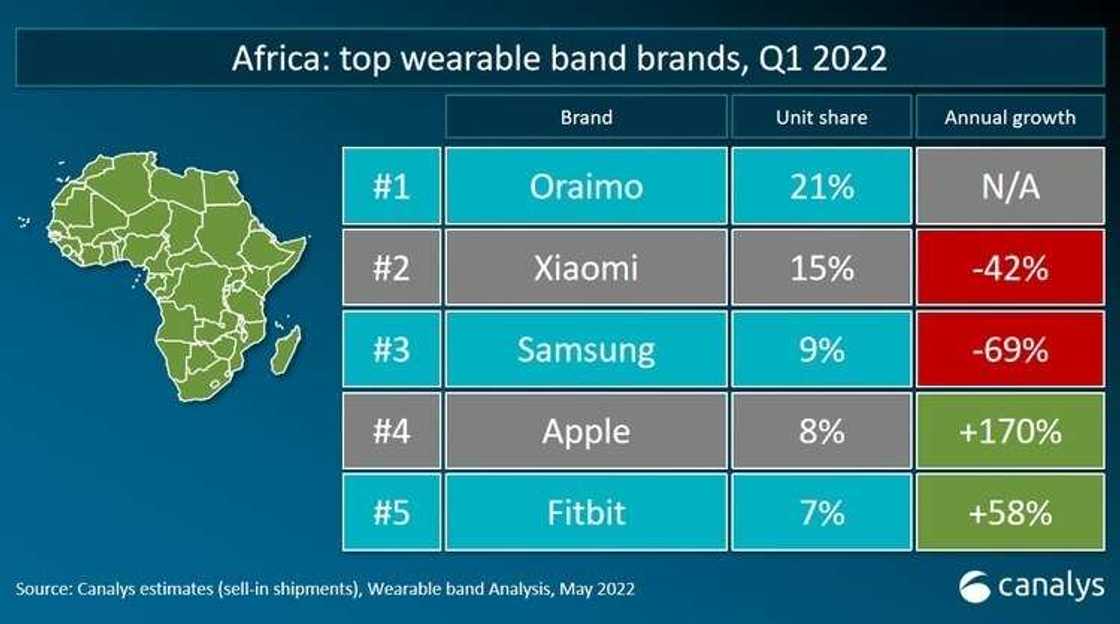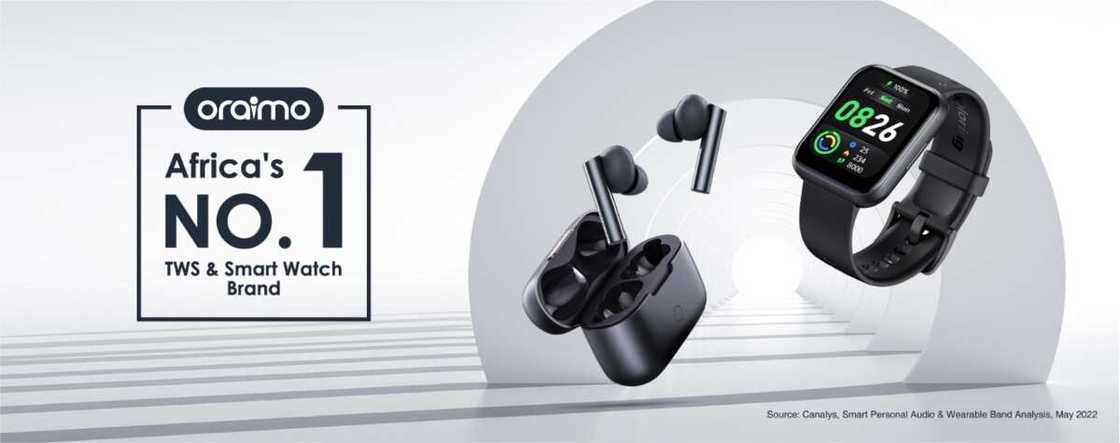How The Top 5 African Wearable Brands Fared In the Ist Quarter Of 2022
The biggest African technology brands are breaking into the worldwide wearables market to meet the needs of African consumers. Canalys recently added a report on the African’s wearable market analysis. Oraimo tops the table of 5 African technology and wearables brands that witnessed massive growth in the first quarter of 2022. This growth comes from the ongoing global disruption in the retail industry stemming from the COVID-19 pandemic, the rapid acceleration of digitization in Africa, and the changing shopping habits of African customers. Moreover, thanks to the surge in demand for wearables, Oraimo has moved past its direct competitors, Xiaomi and Samsung, and is fast becoming the preferred wearables brand, especially in countries like Nigeria.

Source: UGC
Experts state that African consumers are now more concerned about their health and are adopting wearables, especially fitness trackers and smartwatches, for health monitoring at home. Wristwear such as fitness trackers and smartwatches can monitor steps, heart rates, sleep patterns, and even oxygen levels. These devices currently account for over 36% of worldwide wearable sales. More people paid attention to their health needs during the pandemic and have since transformed their lives to become more health-focused. Falling price per purchase of wearables and the emergence of new features and shapes for these wearables are equally driving stronger sales. The fall in prices of these wearables is especially driving their adoption in the African market.
Top Five African Wearables Brands in 2022
Oraimo is presently the leader topping the wearables market in the African space. This is largely due to the company’s continued delivery of exceptionally powerful smartwatches, fitness trackers, earbuds, and more.

Source: UGC
The brand is also continuously delivering remarkable wearables offering a wide variety of features like sensor performance, smartphone interaction, battery life, and fitness-oriented modes geared towards promoting a healthy lifestyle for Africans. Fashion-conscious consumers are also treated to various sleek designs and trendy interfaces. That said, the biggest driver of acceptance of Oraimo products is that its wearables are remarkably affordable and durable. No wonder the brand currently holds over 21% unit share of the African wearable market.
Top contenders Xiaomi and Samsung have witnessed record drops in sales of wearables in the African market. Even with their improved device portfolio mix of basic and smart watches, the brands are on a declining trend as their smartphone business has also been cut. Xiaomi holds the top place with over 15% unit share, but it has also witnessed over 42% decline in wearables sales.
Samsung only holds a 9% unit share of the African wearables market and has witnessed over a 69% decline in the demand and sales of its wearable products.
In recent years Apple has been topping the wearables market worldwide as the interest in Apple products grew substantially. However, in the African wearables market, the reverse is witnessed. Even as the demand for Apple products has increased to over 170%, the demand for this product is nowhere near the demand for Android-based wearables. This is largely due to supply constraints and African consumers' preference for affordable (but durable) products without any software restrictions over sophisticated and expensive wearable products. At the end of the first quarter of 2022, Apple wearables only occupy over 8% of the market.
Fitbit continued transformation with the promotion of its ionic smartwatches and dual support for Android and IOS platforms is also driving demand for its product in the African space. Presently the brand sits at the bottom of the top-performing African brand, but it isn’t doing badly. This is largely due to the high price of wearable products and the need to purchase membership plans to access its fitness features. However, the brand isn’t doing quite badly. In the past few months, it has witnessed over 58% growth and has over 7% unit share in the African wearables market.
It is also expected that these brands will continue to top the market in the remaining quarters of 2022, bearing in mind their responsiveness to delivering value-oriented products to consumers. In the coming months, competition for consumer attention will continue to drive the release of new product developments, further accelerating wearables' growth in the African market.
Source: Legit.ng


